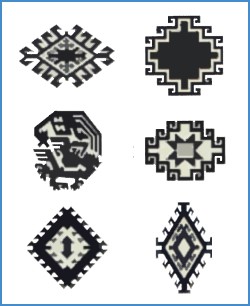The Kilim
The art of making rugs was probably developed in the steppes of Central Asia several thousand years ago. The kilim rug although it has roots far distant in time, in many ways reminds the most modern and attractive design. Talking about kilim rugs means refering to rugs woven as tapestries which have no pile and are made in different countries around the world, from Iran to Eastern Europe, the Far East Balkans. The weaving technique of the kilim rugs provides that they are created by weaving the weft threads and warp very closely, so as to give life to a flat surface and without pile. It should be noted that almost all the kilim fabrics have weft threads which are pulled down (this is called front texture) in order to keep the vertical warp threads hidden. For the creation of the kilim are used exclusively natural materials like wool and sometimes silk for the warp. The colouring of the yarn is done with plants and minerals, which help to the natural and elegant colour of the rug.
Decorative patterns
By the pattern present in a rug you can understand the style of the carpet and often its origin. The pattern is the most evident feature, and perhaps it's even more important in a rug. In the city weaving ateliers much time is devoted to the creation and to deepen the traditional patterns. When creating a kilim, the pattern is, as it were, drawn with the warp threads, and then realized by turning the threads themselves. When the threads are turned, a small space, that should not be too large, is obtained. The traditional pattern, which characterizes the kilims and makes the rugs have the same appearance from both sides, is obtained by this technique. Normally the ends of the threads are hidden, but there are other kilim techniques in which the ends of the threads remain free on the back of the rug. The kilim privilege exclusively abstract geometric patterns or stylized nature motifs, which always have a clear symbolic connotations largely unchanged to this day.
Symbols
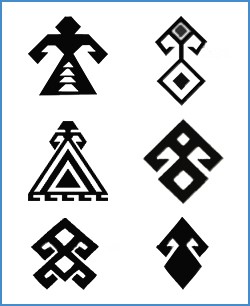
Elibelinde
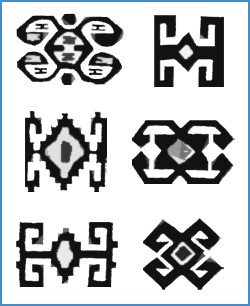
Koçboynuzu
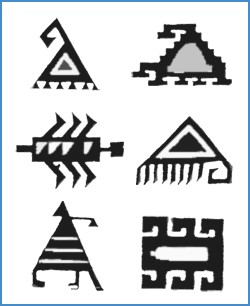
Akrep
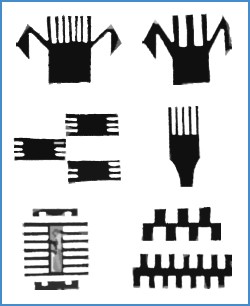
Tarak
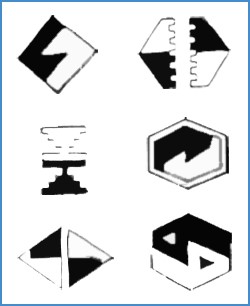
Ask ve Birlesim
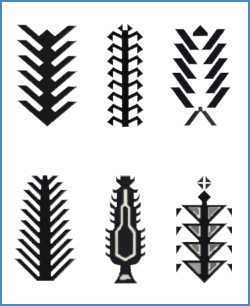
Hayat ağaci
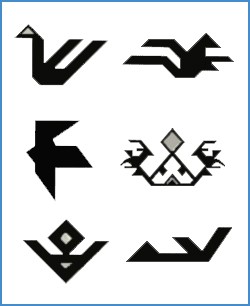
Kuş
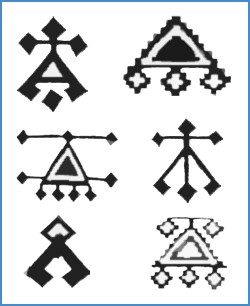
Kupe
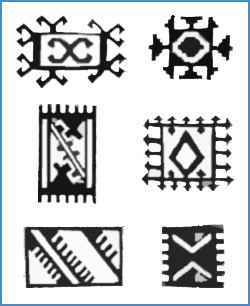
Sandik

Yildiz

Nazar
